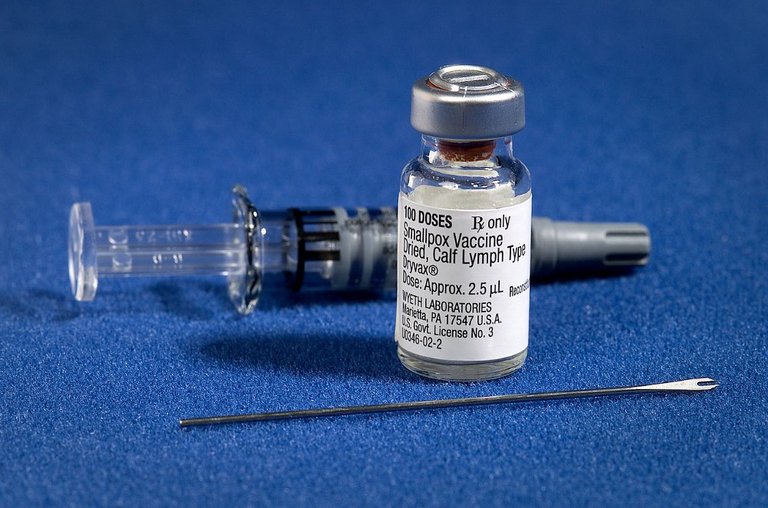
James Gathany, via Wikipedia Commons
“My body my choice” is a mantra you may have heard frequently during the pandemic. An inversion of the popular pro-choice slogan, if you’re on the American political left (as am I) you probably rolled your eyes at it. Apples and oranges, surely? In fact, I don’t think it’s as simple as that.
In both cases the mantra protests unwanted, invasive intrusion into your body. A violation of bodily autonomy, the final frontier of individual liberty and civil rights. If you don’t control your own body and its contents, what rights do you have?
You may protest that it’s different because choosing not to vaccinate can kill somebody else, but so does abortion much past six weeks or so, at which point the fetus is recognizable as a human infant. Yet outside of Texas, abortion remains legal. I personally support abortion access, but that doesn’t stop this from being a logical problem for the pro-mandate position.

Spencerbdavis, Wikipedia Commons
It’s cause for rational concern that the government can medicate us without our consent. To say, “You can choose not to, but freedom of choice does not mean freedom from consequences,” ignores that the consequences are artificial (job loss due to mandate) not natural (contracting Covid). It’s like Christians saying that Yahweh doesn’t send anybody to Hell. They choose to be there by not believing.
What if I’m the one who decides what the consequences will be, and who receives them? If I don’t like some of your choices, have you chosen to suffer the consequences I decided upon? People who use the “freedom of choice, not from consequences” argument only do so when the law aligns with their values. What about women who run afoul of Texas’ new abortion laws? Have they simply chosen to suffer the consequences?
If the answer is no, then one must agree that sometimes the law is immoral, and that government imposed consequences are not always imposed righteously. Which shouldn’t be controversial, as “what is legal and what’s moral are not always the same” isn’t controversial.
But what if I told you that the division is mostly needless? That “The vaccines are safe and refusing them is foolish,” can be true at the same time as “the government should not be able to medicate us without our consent,”? Understanding by now that yes, in fact, manufacturing consent via economic coercion makes it illegitimate.
This assumes of course that one subscribes to the broad feminist definition of consent (and the ways it can be illegitimate) rather than the narrower Republican definition. The former perspective holds that consent is only consent when it’s legitimate. And that it’s only legitimate when it isn’t coerced, manufactured, obtained under duress and so on.
The other factor being overlooked in all of this is that different people prioritize values differently. Someone who prioritizes community wellbeing over individual liberty, for example, will naturally support the mandate. Someone who prioritizes individual liberty over community wellbeing, naturally, will oppose it.
Is there an objectively correct order of moral priorities I’m unaware of? Are there not valid arguments to be made for the primacy of individual liberty, as the foundation of all other liberties? To my mind, that’s the conversation we ought to be having.
Another common argument is that multiple vaccinations were already mandatory in the military for decades. But should civilian society be patterned after the military? Isn’t “It’s been this way for a long time” just an appeal to tradition?
For the record, I myself am double vaccinated with Moderna and getting my booster next week. (EDIT: I have received my first booster since the time of this writing) This is because I recognize vaccines don’t make sense as a means for the government to kill off undesirable surplus population, or any of the other conspiracy theories about it.
I am proof that it’s possible to be pro-vaccine, and still see something unseemly about mandatory vaccination. That’s a bad precedent to set which is absolutely ripe for abuse in the future. I am not so conspiracy minded as to believe establishing that precedent was the purpose of the mandate, but it will be one of the unfortunate, lasting consequences of it.
